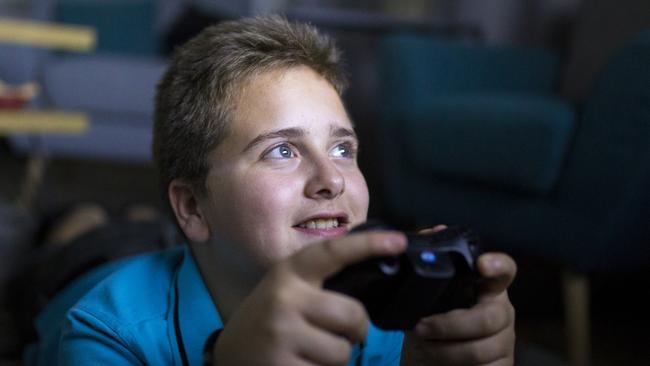Gaming ‘loot boxes’ linked to gambling, mental health problems
Gaming and problem gambling have been linked in an international study that warns of the dangers of ‘loot box’ rewards in video games.

Gaming and problem gambling have been linked in an international study that warns of the dangers of “loot box’’ rewards in video games.
The risky use of “loot boxes’’ – commonly used to buy costumes, tools or armour, or to gain a competitive advantage in online games – is linked to anxiety, stress and impulsive behaviour.
The study of 1400 adult gamers and gamblers, published in the scientific journal Computers in Human Behaviour, involved researchers from Flinders University in Adelaide, Nottingham Trent University, the University of Gibraltar and the ELTE Eotvos Lorand University in Hungary.
“The results showed (a) positive relationship between LB (loot box) buying, problem gambling and problematic video game use,’’ the research paper states.
“A positive relationship was found between risky loot box buying and depression, anxiety, stress and impulsivity.
“Loot box buying shares similar mental health risk factors with other behavioural addictions.”
Flinders University professor in mental health and wellbeing Zsolt Demetrovics warned that children who paid for loot boxes online “might be at risk for future gambling’’. “We have to pay special attention to gambling-like features in video game use,’’ he said. “It might produce gambling later in adolescence – it’s an obvious risk. Many different games offer these kinds of schemes to develop your avatars or your abilities in the game.’’
Professor Demetrovics said that “often parents do not know what’s happening’’. “Even though the video game developers and industry try to communicate there is a clear distinction between video games and gambling, that is not true,’’ he said.

The findings coincide with a sharp rise in the number of Australian children diagnosed with ADHD (attention deficit hyperactivity disorder) or autism, as well as teacher complaints about disruptive students.
The Australian Classification Board took action this month by slapping a mature M rating on all video games containing loot boxes – or in-game purchases linked to elements of chance.
Games that contain simulated gambling such as casino-style mechanics, or in-game betting will receive an R 18+ rating, restricting them to adults.
Australian Secondary Principals’ Association president Andy Mison said schools were struggling to teach students who spend too much time gaming.
He said gaming developers had a moral obligation not to make their products “deliberately addictive”. “If game developers are using gambling algorithms then that is unconscionable and absolutely outrageous,’’ he said.
“Technology is exploding with innovation, often too fast for us to catch up. We do need to put sensible regulations in to protect our young people.’’

Mr Mison said that children should enjoy gaming, and reap the benefits of technology, but developers “have a responsibility to make sure they’re safe’’.
“There is an obligation on the part of those who profit from this technology that they take every precaution to build in measures to keep our children safe – not subjecting them to addictive, habit-forming algorithms,’’ he said.
The Australian Institute of Family Studies has reported that Australian teenagers spent between $10 and $70 a month on loot boxes, citing data from the NSW Youth Gambling Study in 2022. The Office of the eSafety Commissioner has found that one in three children makes in-game purchases.
The Organisation for Economic Co-operation and Development has warned that digital devices are dumbing down Australian students. Its analysis found that Australian students who spend more than three hours a day on digital devices for leisure performed nine months behind their classmates.







To join the conversation, please log in. Don't have an account? Register
Join the conversation, you are commenting as Logout